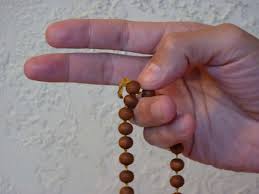க்ஷினகாளி உபாஸநா
1. காளிஉபாசநா
2. காளி வழிபாட்டின் முக்கியமான க்ரமங்கள்
3. குருவின் கருணை
4. நித்ய பூஜை
5. ஜபம் செய்யும் முறை.
கடவுள் வாழ்த்து
ஓம் காராய பிரணவ ரூபாய
விக்ன நாஸாய நமோ நம:
ஸ்ரீ மாத்ரவே ஸ்ரீ பித்ரவே
ஸ்ரீ குரவே நமோ நம:
சிவாயை சிவசக்தி ரூபாயை
நமச்சிவாயை நமோ நம:
நாராயணாயை லக்ஷ்மிகாந்தாயை
க்ருஷ்ணாயை நமோ நம:
ராமாயை ராம தூதாயை
வாயுபுத்ராயை நமோ நம:
சரவணபவாயை மங்களரூபாயை
பூமிபுத்ராயை நமோ நம:
நவ காள்யை நவ கோள்யை
நவ துர்காயை நமோ நம:
சூர்யாயை சந்த்ராயை
காயத்த்ரியை நமோ நம:
1. காளிஉபாசநா
அரிது அரிது மானிடறாய் பிறத்தல் அரிது.
எளிதில் பெற இயலாதது இந்த மானிட ஜன்மம் .நாம் செய்த பூர்வ புண்யங்களால் நமக்குக் கிடைத்திருக்கும் ஒரு வரப்ரசாதம். இந்த மானிட வாழ்க்கையில் நாம் பெற வேண்டிய நான்கு புருஷார்தங்களாகிய தர்மம், அர்த்தம், காமம், மோக்ஷம், என்கிற நான்கு புருஷார்த்தங்களுள் முக்தி (மோக்ஷம்) பெறுதலே தலையாயது.
புருஷார்த்தம்' என்றால், ஒரு மனிதன் தனது வாழ்க்கையில் அடையவேண்டிய குறிக்கோளாகும். தர்மம், அர்த்தம், காமம், மோட்சம் என்ற நான்கும் சதுர்வித புருஷார்த்தங்கள் ' என்று கூறுவர். இதனை அறம், பொருள், இன்பம், வீடு என்று தமிழிலும் சொல்லப்பட்டுள்ளன.

